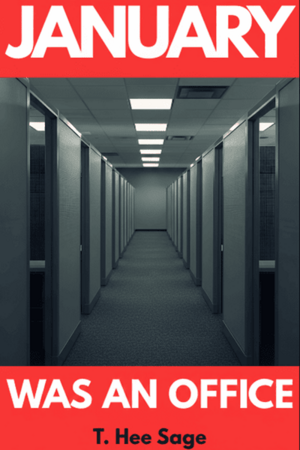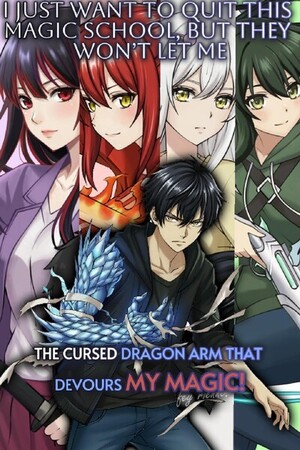Chapter 6:
To Call You Friend
January Was an Office
He ran along the path beside the wall until he reached the main aisle, then sprinted through. Pink One. Red One. Blue One. There it was, White Collar’s—number 500.
What could he say? How could he even begin to thank her for what she had done? Even if White Collar hadn’t done any of this on purpose, Rojif still felt he had to show her his gratitude. Words, gestures, a simple nod—anything to convey even a fraction of what he felt.
He took a deep breath, steeling himself, and stepped into the cubicle.
“Hey I—” His words died in his throat when he saw White Collar . . . her left arm was gone.
His jaw tightened. What . . . had happened to her? He moved closer, eyes fixed on the charred, black stump where the limb had been. Did Mr. Jan do this? The memory of his words came back sharply: “Break the rules—face the consequences. Fair enough.” White Collar had attacked Pink One, broken a rule—and the cost had been severe.
Rojif’s gaze fell to her other hand, still typing methodically at the keyboard. No reaction. No sign of pain. The cold efficiency of it all left him angered, yet helpless. There was nothing he could do.
He remembered something else Mr. Jan had said: these workers had once been people like him, who had chosen to remain here, condemned to an endless task of recording and reliving their own pasts.
The thought of trying to read the worker’s screens hadn’t crossed his mind before—he’d been too busy delivering. Slowly, Rojif looked up at White Collar’s screen. A wall of text filled it . . . and he could understand it all:
—Mom smelled like soap. Dad’s hands were rough. Mom braided my hair. Dad lifted me up. Mom laughed in the kitchen. Dad called me inside. Mom hummed when she worked. Dad whistled when he walked. Mom tucked me in. Dad carried me to bed. Mom kissed my forehead. Dad put his hand on my shoulder. Mom told stories. Dad said I was brave. Mom said be careful every time I left. Dad said you’ll be fine no matter what. Mom got mad when I stayed up late. Dad let me stay up anyway. Mom wore slippers that slapped the floor. Dad wore an ugly brown jacket—
Rojif leaned back, placing a hand on his head. What . . . What was this? Why were her memories like this? A chill ran down his spine. These weren’t just words—it was someone’s childhood, pressed flat on the page so it wouldn’t disappear—a mind laid bare.
“We make sure all the information you want gets to you—straight to your desk,” Mr. Jan had said. But now Rojif understood. White Collar didn’t need everything—she just needed these two people. And in that endless remembering, Rojif felt the ache of it all: the hollow of a child living only in what was lost.
A lump formed in his throat. Mom . . . Dad . . . he understood what these terms meant—parental figures—but he couldn’t draw a face on them; all that surfaced from his mind were blank, empty silhouettes.
Rojif took out his two remaining silver tokens and placed them beside White Collar. They were useless to him now anyway, and he still hadn’t paid her back.
He placed a hand on White Collar’s shoulder. “You’ve suffered more than anyone should, and you still helped me. Thank you . . . friend” he whispered before leaving the cubicle.
White Collar’s fingers hadn’t stopped moving, but at one point, there was a slight hesitation—a pause between each stroke, as if the rhythm of her work had shifted consciousness. Then, just as quickly, it fell back into the same relentless rhythm—one that would never waver again.
—Mom brushed crumbs off my shirt. Dad fixed the loose leg of my chair. Mom checked my forehead when I was sick. Dad showed me how to skip stones. Mom stayed up until I fell asleep. Dad told me scary stories in the dark. Mom folded my socks in pairs. Mom kissed my scraped knee. Dad lifted me over puddles. I think I made a friend. Mom wiped my face with her sleeve. Dad put salt on everything. Mom whispered prayers at night. Dad turned off the lights. Mom held my hand at the market. Dad held my hand crossing the street. Mom stayed quiet when she was tired. Dad sighed when he was tired—
Rojif hurried down the aisle. He didn’t know how much time was left before the transition, and he had several questions he needed answered. How did January use his memories? Why did they need people’s memories? Why was he one of the few brought to this world? What happened to those who broke the rules before January ended? He needed to hurry back to—
“Huh?”
Rojif was stepping on air, on clouds. The office was nowhere to be seen—the aisles, the cubicles . . . gone. He looked down and saw a giant, squirming mass of violet and twilight—the one he’d seen outside Mr. Jan’s office—far below. As he watched, the air around him suddenly let go and he found himself falling toward the breaking sea of darker shades. He opened his mouth, but no sound came. Head first, he plunged—and the colors didn’t just hit him . . . it unmade him.




Please sign in to leave a comment.